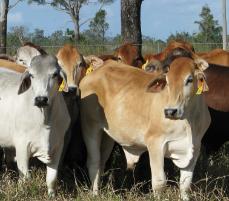Beef Australia sticks with 3-year cycle following CQUni surveys
Published on 23 March, 2012
Beef Australia says its cattle industry expositions will continue to be held just once every three years, in line with strong views from exhibitors, primary producers and sponsors not to switch to a two-year cycle.
The decision follows two on-line surveys by CQUniversity - one to collect community views and the other to gather feedback from exhibitors and cattle producers - as well as a number of stakeholder interviews, to examine the pros and cons of changing the event to a two-year cycle.

Key results are available on the Beef Australia website, http://www.beefaustralia.com.au/
Beef Australia expositions are the biggest and most comprehensive cattle industry events in the country. They are held in the ‘beef capital' of Rockhampton, with the next event due to run from May 7-12 this year.
The results of the survey have been delivered to the Beef Australia board, which has supported the recommendation to retain the event on the three-year cycle it has followed since inception in 1988.
"The results of CQUniversity's survey are clear and the Beef Australia board has agreed that the 10th Beef Australia exposition will be held from May 4-9, 2015," Beef Australia chairman Geoff Murphy said.
CQUniversity's Director of the Centre for Environmental Management, Professor John Rolfe, oversaw the research with co-investigators Associate Professor Kristy Richardson and Latisha Mace. They examined questions including how frequently people attend Beef Australia events, their motivations for doing so, reasons why people do not attend, and the likelihood of visitors, producers, sponsors and exhibitors participating if the event was held every two years.
The surveys and interviews revealed strong feelings against a biennial pattern but little evidence of passionate support for a biennial event.
The key reasons identified against a switch to a biennial exhibition were that the event may lose its uniqueness or suffer reduced sponsorship; some trade exhibitors and stud stock breeders would reduce their time commitments to exhibit at the event; stud stock breeders may not have enough time to change the genetic base in their herd; and the focus of the event may change more towards an ‘entertainment' event rather than an exhibition focused on beef.

